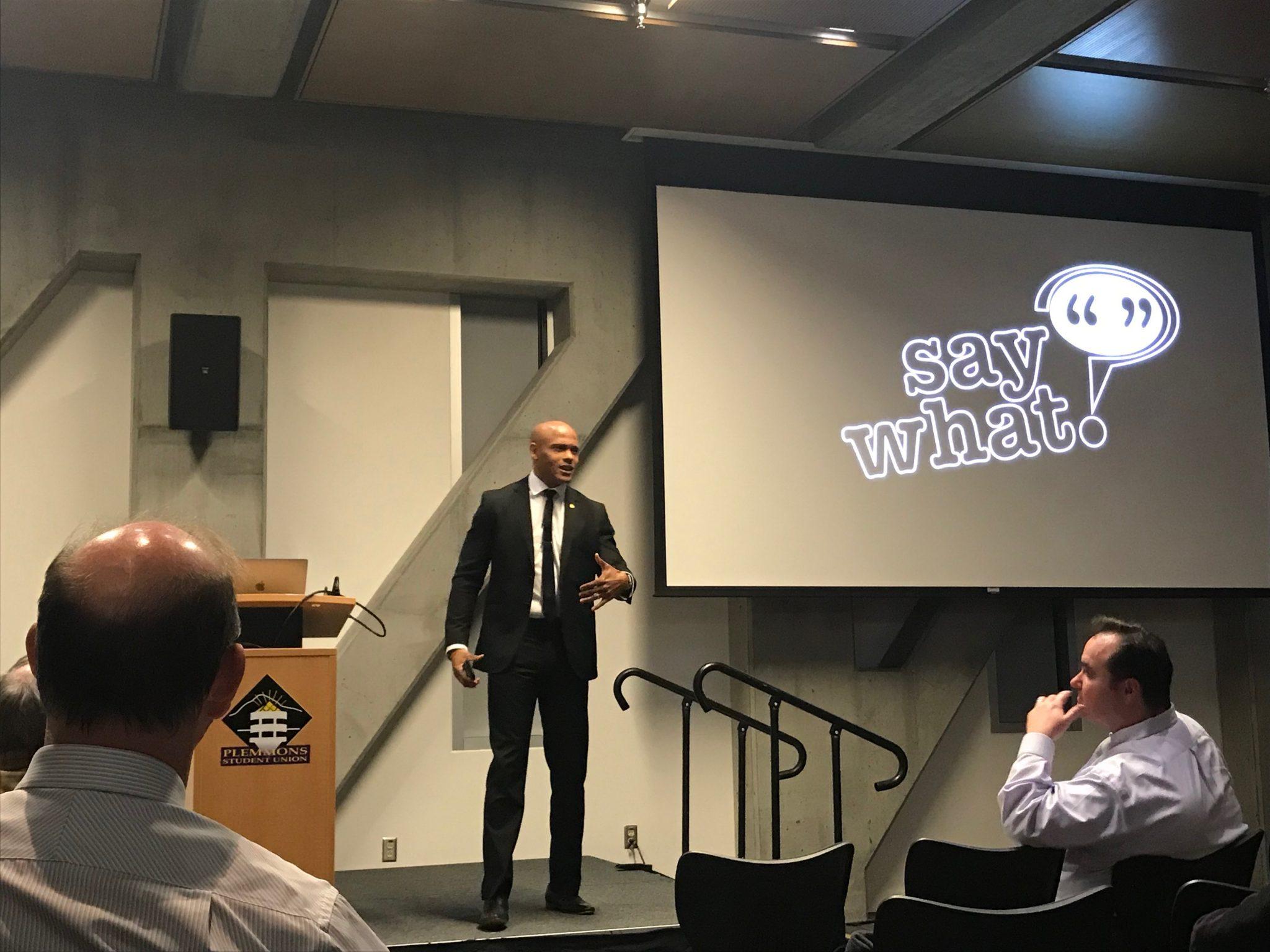To kick off the “Say What: Examining Freedom of Speech at App State” series, civil rights leader, activist and keynote speaker Toussaint Romain discussed free speech, activism, public protest, law enforcement and students’ rights.
Jonathon Hyde, associate vice chancellor and dean of students, was responsible for bringing Romain to campus as the organizer of the series. Paul Megget, the general council for App State, also had a connection to Romain, which influenced their choice to bring him to speak to students, Hyde said.
Hyde also said Romain’s experience in protesting influenced the decision. Romain acted as a mediator in the protests of the shooting of Keith Lamont Scott in September 2016 in Charlotte.
“I thought it would be a great way for somebody who’s active and engaged and working with the community when issues arise, but who also has the legal background to understand free speech and talk about it,” Hyde said.
Romain started his presentation by asking questions about how students should handle issues with freedom of speech. He then presented how the world would be if black and white roles were reversed in history to now, imagining the caucasian race was inferior.
“I think he’s doing a really good way of tying in history to where we are now and giving everyone that greater perspective,” Emily Dabau, is the graduate assistant for inclusion and engagement and representative of Taste of Dialogue, said. “I think he’s very encouraging of using our voices, especially students using their voice to address problems that they see on campus and in the community.”
Romain said protest and change can happen anywhere and can be organized by anyone. He said to overlook stereotypes of people and areas and to not think of the community as small, but to think of your protest as big.
“I think if we just took ourselves out of that box,” Romain said. “It’s ‘Are you brave enough to just speak to the issue?’ That’s how change happens. If young folks realized how powerful they actually were, then students could be so empowered to really change so much.”
Romain also mentioned how aggressive the act of protest can be, as many times each side is quick to shut down the other.
“I think when protesters are arguing and we have one side arguing that they’re right, the other side is arguing they’re right, and neither group is getting any better, what if we said, ‘Hold on for a second, let ‘em finish,’” Romain said. “Then maybe they can work to hear each other.”
Romain, along with Taste of Dialogue and other sponsors of the “Say What?” series, encourage students to continue to learn more about speaking up in ethical ways on and off-campus throughout the events, and throughout their lifetimes.
Story by Emily Broyles
Photo by Emily Broyles
Featured photo caption: Keynote speaker Romain spoke to the crowd about his own experiences in protests, as well as learning how to deal with racism. Discussions and well as a Q&A were held after the presentation.


